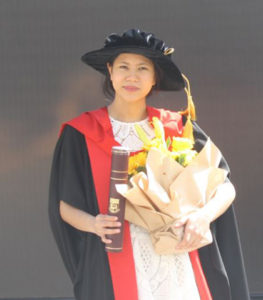Migrant women find independence and more rights in Australia
 Migrant women in Australia are finding more independence and a healthier and wealthier life with more opportunity than in their home countries, according to a new survey.
Migrant women in Australia are finding more independence and a healthier and wealthier life with more opportunity than in their home countries, according to a new survey.
An overwhelming majority of women migrants find life in Australia ‘better’ than in their home countries and believe they have more rights than at home.
Most say they have more opportunities here than at home and are more financially independent.
And overwhelmingly they say they have more control over their daily lives here in Australia and believe men and women should have equal access to opportunity.
The survey of 140 new women migrants and refugees from non-English speaking countries, commissioned by refugee and migrant settlement agency AMES Australia, also found that migrant women in Australia have more access to a range of services and activities including education, work, women’s health, child care, driving a car and political and religious activity.
Timed to coincide with International Women’s Day, the survey asked ‘As a women is life in Australia better for you than in your home country?’ Seventy-one per cent of respondents said ‘yes’ and eight per cent said ‘no’ while 21 per cent said there was no difference.
Eighty-four per cent of women said they had more rights in Australia than in their home country while 9 per cent said they did not.
Seventy-eight per cent of the survey respondents said there were more opportunities for women in Australia than at home while 15 per cent disagreed.
Asked about particular services or activities that could be accessed in Australia, around 70 per cent said both education and women’s health services were easier to access in Australia.
Fifty-three per cent said work was more accessible in Australia, while 55 per cent cited driving a car as being easier in Australia and 54 per cent said child care was more accessible.
Meanwhile 31 per cent said religious activities were more accessible in their home countries and 21 per cent said work was easier to come by.
An overwhelming 78 per cent of respondents said Australian women were more independent than women in their home countries.
Sixty-three per cent said they were more financially independent in Australia while 20 per cent said they were less financially independent and 17 per cent said there was no difference.
Seventy-seven per cent of women said they had more control over their daily lives and six per cent said they had less control while 17 per cent said there was no difference.
The survey asked about awareness of the #metoo movement and whether it had impacted the migrant women’s lives.
Seventy per cent of respondents were aware of the movement and 56 per cent said it had affected their lives in a positive way. No respondent said it had had a negative effect.
Bangladeshi migrant and student Rupananda Roy, who recently completed a PhD at the University of Adelaide, said attaining higher education would have been much more difficult in her own country.
In doing so, she made history by becoming the first woman from one of Bangladesh’s 50 ethnic minority communities to earn a doctorate.
“My family and my husband and his family have been very supportive. Without this support, it can be quite difficult for women from my culture to pursue higher education,” Ms Roy said.
Iraqi migrant Hind Siawish says coming to Australia has meant her daughter will have opportunities she has been denied.
“In Australia women have the right to choose the kind of life thy want to live – in terms of a job, study, travel and making friends,” Ms Siawish said.
She said that before conflict overtook her country, she lived a happy life.
“Since the war, it has become difficult for woman in Iraq, and especially Christians, to have any independence, said Ms Siawish, who is studying English and hopes to resume her career in Pharmacy.
AMES Australia CEO Cath Scarth said the survey showed that women migrants and refugees new to Australia are optimistic about their new country and are striving to become part of the wider society.
“What the survey tells us is that women migrant and refugees who come to this country appreciate the level of equality we have and the opportunities that are available to women here,” Ms Scarth said.
“It shows that most migrants value our services and institutions and want to make the most of what this country offers them,” she said.
Laurie Nowell
AMES Australia Senior Journalist












